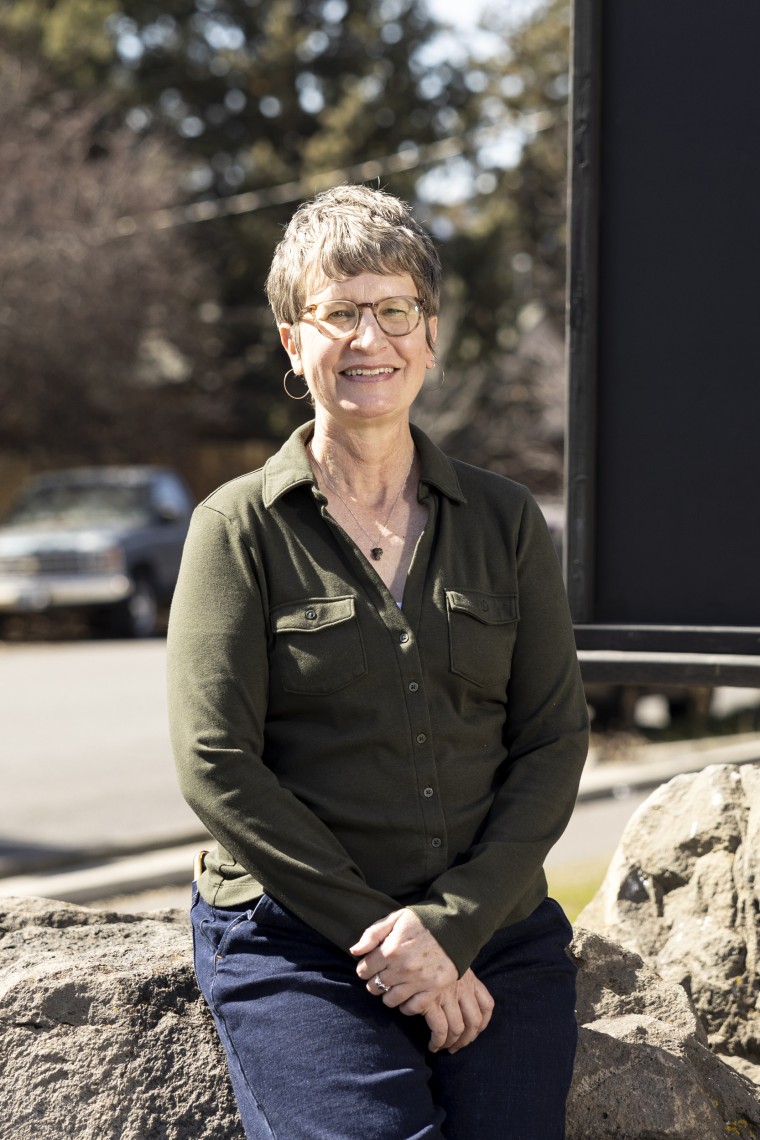Welcome Corps program allows Americans to sponsor refugees and help them in the U.S.

“If they have received refugee status in the region, the program gives us Americans the opportunity to serve as sponsors for those people and help them start a new life in this country,” said Muñoz.
The sponsoring group helps refugees transition to life in the U.S. and the group must also demonstrate the financial ability to support the refugee during their first 90 days in the country (in the amount of $2,425 for each person).
The sponsors are also guides for the newly arrived refugees, and that includes doing things like welcoming them when they arrive at the airport, helping them get housing and helping adults find employment, enrolling children in school, helping them enroll in state and local benefits and in English-learning programs — all important factors in starting to build a new life, explained Keegan Pyle, director of sponsorship programs at Welcome Corps.
Amy Kasari, who lives in Bend and is a pastor at Antioch Church, was one of the organizers of the sponsorship group that has helped Chaparro’s family.
“We have found that our large community has been very welcoming and interested in learning about their past and the culture they come from. There is a lot of familiarity with the food, music and different cultural aspects of Latin American culture. It was a very easy transition,” she said about the six months that have passed since the Colombian family arrived.

Kasari said the experience has been so positive for the community that they are forming another group to sponsor a new family through Welcome Corps.
“The biggest challenge of hosting a family is finding housing. So we are working with different landlords and real estate agents to locate some good housing options. And, when we have that ready, we will begin the process to be able to receive another family in the coming months,” she said.
Over 65,00 people have formed sponsor groups throughout the U.S. In December, the program was expanded to allow sponsors to facilitate the resettlement of refugees with whom they have personal connections, including family, friends, classmates and co-workers. Sponsors have submitted over 13,000 applications to help refugees they know directly.
“Welcome Corps is a great advance because it allows citizens and people who are living legally in the United States to request people they know who are refugees … In addition, it accelerates the resettlement process in the United States,” Andrew Selee, president of the Migration Policy Institute, an independent research group, said.
Seele said the fact that the program uses the same networks that already exist to receive and help refugees settle — family groups, religious organizations — is what makes it a good idea.
Forging ties and a community
Those accepted into Welcome Corps like Chaparro and her family acquire refugee status in the U.S. and can start working once they enter the country. Additionally, they can apply for permanent resident status after one year and, after five years, are eligible to become citizens. They are also eligible for federal and state refugee benefits such as medical coverage through Medicaid and supplemental food assistance and other programs.
For Chaparro and her family, the experience is a chance to start anew.
Chaparro was a local political leader in Cúcuta, a Colombian city bordering Venezuela, and began to be persecuted by armed groups since she was very young. “That persecution began in 2002, with the death of my stepfather. I was a witness to the person who came looking for him to end his life,” she said, adding she was always found by groups who threatened her even after trying to move to different parts of the country. According to official figures, in 2023 alone, 181 social leaders and human rights defenders were murdered in Colombia.
Chaparro still worries about her 22-year-old son Steven, who couldn’t leave Colombia when they did and is now in Ecuador doing paperwork with Welcome Corps.
Meanwhile, Chaparro and her family have begun to adjust to life in Bend, a city of 100,000. She works in a hospital and her husband in a cleaning company, and they both study English to integrate more quickly.







